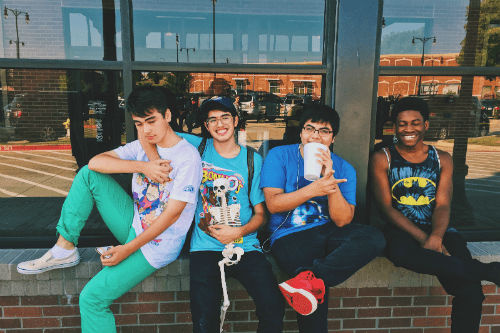
Even online, “anything you say can and will be used against you in a court of law.”
Anyone who has spent more than a few minutes on social media, you likely read abusive and offensive statements posted or left as comments to a post.
Justin Olsen, an 18-year-old Ohio man has been arrested and is facing state and federal charges after investigators claimed he made threats against federal law enforcement and Planned Parenthood. The FBI investigation found multiple entries in which Olsen posted his support of mass shootings, and cited a target of Planned Parenthood.
Olsen was arrested on Aug. 7 and told the FBI that his posts were “only a joke”. He was booked into the Mahoning County Jail on state charges of telecommunications harassment and aggravated menacing, and the federal charge of threatening a federal law enforcement officer.
Is abusive language unlawful?
Although the Justin Olsen’s charges are severe for online behavior, a malicious or threatening post may qualify as defamation. Defamation is the publication of a statement about someone which hurts their reputation in the eyes of members of society.
Abusive language is always in bad taste but it is unlikely to break the law unless threatening or contains criminal intent.
Can I be arrested for releasing a video?
Richard Godbehere, a Hawaii native, knows all too well about the repercussions that come with “over-sharing”. In February, he uploaded a 5 minute video of himself driving, then cracking open a beer and taking a drink. He made a joke stating “We all know drinking and driving is against the law. You’re not supposed to do that. But they didn’t say anything about driving and then drinking.”
Even though he knew he was posting a video of himself doing something illegal, he was still surprised when the police showed up at his house prepared to arrest him on charges of consuming alcohol while operating a vehicle.
Although Godbehere stated the video was meant as a parody and claimed there was no beer in the bottle, the Police Chief Darryl Perry stated “Our traffic laws are in place for a reason, and Mr. Godbehere’s blatant disregard for those laws is the type of behavior that won’t be tolerated.”
Severe consequences.
In Steubenville Ohio, social media played a part in the case against two football players who were found guilty of raping a drunk 16 year old girl.
The victim says she doesn’t remember much of what happened that night when Trent Mays, 17, and Ma’lik Richmond, 16, assaulted her at a friends party in 2012, and was only made aware of it after a video popped up on social media. A key piece of evidence was an instagram photo of the boys carrying the girl out of the house by her arms and legs.
Legal experts say photos and videos, whether posted publicly or obtained by police, have to meet certain criteria:
- They must be authenticated, meaning the prosecutors have to prove the images are what they seem and have not been altered or staged;
- And they can’t be shown out of context
Additional charges were later brought against two teenage girls after police were shown twitter posts threatening the victim physical harm if she didn’t drop the charges.
When the accused admits to posting the materials themselves, the incriminating posts put them in the awkward position of having to disavow their own words. The boys each served 2 years in prison.
If you or someone you love is in need of an experienced and aggressive criminal defense lawyer, call Terry Sherman.





